If you’re familiar with Luxury, you’ve most likely heard them described as Morrissey backed by Fugazi, which is a cool description. After watching the new documentary, Parallel Love: The Story of a Band Called Luxury, I would go as far as describing Luxury as experiencing Vincent Van Gogh’s Starry Night in the bellows of a mosh pit. They are just that good.
Here is my confession. I did not know much about Luxury prior to hearing their Trophies album. I had their CDs and was aware they were wildly creative while not writing for a Christian audience (even though Tooth & Nail was their label in formative years). I also knew three of the members became Orthodox priests following their awful wreck after Cornerstone ‘95. The film left me spellbound. I felt I had re-discovered a band I could connect with on a deep level, only many years late to the party.
Matt Hinton, the second guitarist of Luxury, is responsible for creating Parallel Love. Matt has been present at select film screenings, offering a Q&A following the film. I attended the Vancouver showing, and later joined Matt and five others at a nearby pub to chat and eat. About a month later, Matt was gracious enough to let me pick his brain further.
DP: You’ve been touring various cities in the US/Canada in promotion of your Parallel Love film. How did that tour come about and how has it been going?
MH: I would say it’s not as much a tour as it’s been occasions that I’ve been able to intercept the film, either because it was convenient or because that was part of the request of the cinema. For example, in Portland and Seattle, that that was a request of each of those cinemas. While I was in the Pacific Northwest, I asked my distributor to make sure there was something else to make it worth my while. So that was how Vancouver came about. Some of them have been week-long runs. Some have been one-off kind of nights in art house cinemas. The way that all came about is we got a theatrical distribution deal with Abramorama, who are distributors of lots of really cool music-related stuff, but not all music-related. And a lot of documentaries, but not all documentaries. They did the Anvil documentary from ten to fifteen years ago. They also did Exit Through The Gift Shop, which is a Banksy documentary. They did Ron Howard’s Beatles documentary from two years ago.
Have there been any highlights or lowlights while taking the film out on the road?
It’s been almost all highlights. I would say that the screening you were at (Vancouver) was only a lowlight because it was a smaller turn-out. In other respects, Vancouver wound up being a ton of fun, like going out with you and the other folks for dinner after. To me, that was great. It’s all been great.
People who have seen the movie seem to like it. One way you can tell is that whenever we’ve done the Q&A, the only thing that shuts down the Q&A is the venue. It’s never because people have run out of questions to ask. They usually run about 30 to 40 minutes, which is a really long Q&A. So everyone has been really engaged and had interesting things to talk about.
Yeah, I found the Q & A time riveting. My attention was there because I was just so curious.
That is the one thing I have found about the response to the film. I used to be a teacher so my instinct as a teacher was to answer every question. Part of the art of making a documentary is to leave people with enough questions afterwards so we can have a good conversation. There were things that I would have liked to explain in the film, but it would have made the film too long. Plus, I’ve found that ambiguity exists in parts of the film, and I’ve enjoyed that.
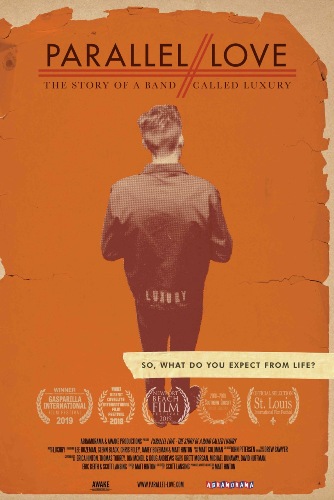 I think you’ve done a really good job of leaving things open to interpretation and curiosity. I recall years ago there was some funding campaign for Parallel Love. Are there any plans for releasing Parallel Love to a wider public, like a DVD or Netflix-type release?
I think you’ve done a really good job of leaving things open to interpretation and curiosity. I recall years ago there was some funding campaign for Parallel Love. Are there any plans for releasing Parallel Love to a wider public, like a DVD or Netflix-type release?
I certainly hope so. The distributor is working on that, especially on the streaming side. The next phase of my interest in this is some sort of international release, particularly in Europe. Let’s face it, Greece and Russia are two predominantly Orthodox nations. I can’t think why it wouldn’t work there. As well as Netflix or Amazon or one of those streaming platforms for sure.
When did you join Luxury and how did that come about?
I joined the band in ’99. I’d been buddies with them prior to that: The band I was in previous to Luxury was a band called Piltdown Man. Those two bands would play shows together. When one band booked a gig, say three months in advance, and somebody in the band wasn’t able to swing it, the one band would hand that booking over to the other band. Now if *that* band couldn’t do it, then we would conspire to create a third band called Metropolitan. Metropolitan was a band that was made up of a different grouping of the two bands. It usually involved songs by each band, and a smattering of cover songs as well. There were really only three Metropolitan shows as I recall. I remember the first Metropolitan show included Luxury and Piltdown Man songs, but also had one or two Big Star songs, maybe a T. Rex song. And we were tight. The singer from Luxury (Lee) and I were roommates for a while in Atlanta. As soon as our bands got to know each other, we became close really quickly. We had a lot in common with our outlook and so forth. Anyway, there was sort of a point where the Luxury albums got a little more involved or interesting in terms of production. It became clear that you needed two, if not three, guitarists for playing live if you wanted to pull it off. Lee was interested in the performance piece of it. The idea was that I would take over Lee’s (guitar) parts live. So I came on as a member of the band in ’98 or ’99. Given our history, I was kind of the obvious person to join.
Cool. You also have an award-winning film on Sacred Harp singing called Awake, My Soul. How did you find your passion in Sacred Harp and what is your current involvement in that?
I grew up listening to the music that my parents were listening to. It was a strict diet of bluegrass and old time country music, pre-Nashville type stuff, more along the lines of ballads. When I was about eight years old, I turned my back on it, thought it was dumb, and listened to Casey Kasem’s Top 40 type stuff instead. Eventually, by the time I was in high school, I started to come back around to the music I was raised with. When I was fifteen or so, I went to a concert that was put on by a North Carolina ballad singer named Betty Smith. There was a flyer posted by the Atlanta Area Friends of Folk Music. One of the things on that flyer was an announcement about a Sacred Harp singing coming up. To this day, I don’t remember what seemed interesting to me about that. I went to that, which was an all-day singing. My instinct at the time was that it sounded like what would have happened if medieval Gregorian chant and early Renaissance music had happened in the foothills of the Appalachian Mountains instead of Europe. It was all a part of that kind of music exploration for me. I started going to Sacred Harp singings on and off throughout the 90s. It was 1998, shortly before I joined Luxury, that my wife and I began working on the Sacred Harp film, though we didn’t finish it until 2007 or 2008. By that time we had become Sacred Harp singers. Now, my family and I are at Sacred Harp singings as much as 30 or 40 times a year, these all day singings taking place on Saturdays and Sundays, usually in country churches scattered around Georgia and Alabama. Since we made the film it has now found its way around the country even in Vancouver, Portland, and Seattle, as well as internationally, to Germany, Poland, Ireland, Australia and so on. We’re still super active in that community.
Is there any correlation between the Sacred Harp community and being a member of Luxury?
No.
I recall there is a song on BandCamp called “Restoration, 312b”….
Well, ok…hold on…”Restoration”…yeah, when we made that (Sacred Harp) film, we also made a soundtrack, which was a two disc set. The first disc was traditional Sacred Harp singing. The second disc was a various artists’ compilation of contemporary artists doing their arrangements of Sacred Harp songs. For that collection, I convinced Lee (Bozeman) to record a song. I totally forgot about this, but the first song he set his mind to was “Restoration” which is on the bottom of page 312 in The Sacred Harp hymnal. I haven’t heard it in ten years. It’s on BandCamp from what you are telling me. Then I think I pushed Lee to attempt a song called “China,” which is on page 163 on the bottom of the Sacred Harp. That was what wound up on the record. So that’s the sole connection. Also, Chris (Foley) and I both played on the song that made it on the record. It was almost a Luxury song. It was an All Things Bright and Beautiful track.
This Sacred Harp disc set you are talking about, how can one get a hold of it?
We are going to re-release it, possibly before the end of 2019. The film is called Awake, My Soul. The soundtrack, with various artists, is called Help Me to Sing.
Parallel Love referenced how Luxury members were injured in the van accident after Cornerstone Festival. The film shows how they contemplated their own mortality during that time. They found some strength in humor and personal connections through that time. I’m wondering if there might be a connection in that event and the three members later becoming Orthodox priests. What are your thoughts on that?
Yeah. I think Jamey (Bozeman) is the most clear about the idea that he did not think he would have become Orthodox, much less a priest, having not been through that event. It serves as a sobering event in his life. If you were to ask him if had to do it over again, and he was in charge of it, would he have had the wreck happen. And his answer is yes, that more good came out of that event than evil. If you ask Lee that, it would be NO (laughter). He thought it was awful. Of course, Lee was injured way worse than anyone else. Whereas, because it’s a movie, and you tell stories in a way that move from one thing to the next, the movie does not very clearly reveal the fact that Chris and Lee were both moving in that direction before the wreck.
They had both converted to Orthodoxy at that point. They were miles away from being priests, of course. But at that point they were Orthodox, and had that theological resource to fall back on, and that community to be bolstered by at that point. It was not as totally out of left field as it might have seemed. Also, Luxury, as individuals, was always serious about our faith. It’s sort of interesting in so far as Luxury had as much relationship with regular bands as with Christian bands. It seemed to me, even more so looking back, that Luxury was far more serious about that kind of stuff than the so-called Christian bands really were, in my estimation. Now, talking to some of those bands who have abandoned the Christian faith… when I’ve talked to some of them, and asked about why they abandoned it… I remember talking to this one guy who said, “You know, I just can’t believe in some old man with a white beard, sitting on a throne in the clouds anymore.” I was like, “What?! I don’t know if you’re kidding or what. No one believes that! What are you talking about?” So it leads to my theory of how those bands wound up being formed and what ended up happening, which was terrible for them and everyone around them. In Evangelical circles you got youth group culture.
What may take place is you have some kid who shares some proficiency on playing guitar. He’s learned a few chords. So you have a youth minister, who innocently wants to encourage that kid. If the kid’s been playing Black Sabbath riffs or something, the youth minister would be like, “Let’s focus the talents over here. Why don’t you play these worship songs for youth group on Wednesday nights?” The next thing you know, the kid has found himself in this world when he’s thirteen years old, all he cares about is if girls are looking at him when He’s playing, or he cares about the riffs and his new pedal. I’m reminded of a student I used to have. She was a girl raised in that sort of context. She sort of disapprovingly said, “Any boy who can play three chords and thinks he’s my spiritual leader…” There was something to that. That was not the experience of the members of Luxury.
From a very early point, we personally would take theology and all the other stuff we were studying in college very seriously. I was a philosophy and religious studies major, and went on to grad school in that area. This was all stuff we were talking about. But it didn’t slip in any direct way into the lyrics, especially in the early days. The lyrics were a different ball of wax.
This leads to my next question. When we went for food after the Q&A on the film in Vancouver, I overheard you talking about someone asking Lee whether Luxury was a Christian band. And Lee responded that Luxury is the *Only* Christian band. Do I have that right? What’s the context behind that?
(Laughter) I didn’t even want to talk about it because it annoyed me so much that it came up at that time. The reason I even brought it up (at the table) was that this person (sitting across from me) wanted to write an article with the title, something like “Luxury: The Only Christian Band.” So for me, it was like, “HUH?!? How did you possibly have that instinct to think that?!” My contention throughout the film is that Luxury is not a Christian band at all. It was obvious, especially in the beginning, from the lyrics that Luxury wasn’t a Christian band. Put it this way. You would find nothing as explicit as what you would find with Led Zeppelin, which nobody thinks is a Christian band. But “meet me Jesus in the middle of the air,” as sung by Robert Plant on “In My Time of Dying,” is vastly more explicit as a statement of some kind of faith. That is a traditional text, so I don’t know we can assume Robert Plant was necessarily singing that in a confessional way, of course. But certainly, if your lyrics are less explicitly Christian than Led Zeppelin’s, then maybe you’re not a Christian band. I don’t know if that’s the general rule we want to have, but maybe that’s some kind of rule.
But certainly, if your lyrics are less explicitly Christian than Led Zeppelin’s, then maybe you’re not a Christian band. I don’t know if that’s the general rule we want to have, but maybe that’s some kind of rule.
… Ok, so what did Lee mean? We were interviewed on this long-form interview show on public radio in Georgia. In the film I go to great pains to point out that one of the reasons the band really never took off was signing themselves to a Christian label, which was a terrible fit because they weren’t a Christian band. So with any of the press that’s gone alongside the film, I’ve been very hesitant to broach that subject with any press releases, even interviews. I didn’t want to talk about it because any interview in general is likely to be peoples’ introduction to the film and the idea of the band. Especially on public radio, it’s a total deal breaker for most people, myself included. In general I am not interested in Christian rock music. So if I heard about a documentary on a Christian band I was not familiar with, that’s just a non-starter for me. I can imagine even more so with ninety percent of the world. So in that context, it was an hour long show and we ended up talking an hour and a half so a good bit needed to be cut. That bit of Lee saying that Luxury is the Only Christian band never aired, thankfully.
The Luxury lyrics…there was a poetic-ness to them. But there was also a lot of critique.
Yeah, there are places you can find glimpses and glimmers of faith coming through. But there is easily as much critique of Christendom or that kind of thing. The lyrics, “…well-read Christian will be double-crossed whores.” That would be a tough one for many Christian bookstores to swallow.
I think that song is called “When Those That Are Not Do Become Those That Are.” Do you think that is describing the freak show amongst Christendom?
I think that’s part of it, the general gospel truth, that the way is down, and those that are high will be brought low, and the low will be raised up. That is a case where, though it has that particular line, there are others that are provocative and contain theological truths. It actually does not take that much effort to discover but it’s ensconced in language that is more rough around the edges. I don’t want to presume to interpret Lee’s lyrics for him.
On Trophies, there’s the song “Don’t Feel Bad If You Don’t Feel Better Right Away.” There are the lines “In the classroom, I sat and watched you, Never underlined a word, Funny unbelievers.” I’m trying to flesh out why Lee is depicting unbelievers that way. Can you enlighten me?
Well, there’s the other line on the album that says “unbelievers are strange.”
Yeah, “…I loved a few, I remember their names…”
I would say it’s another case of provocation on Lee’s part. I don’t know how he would put it in theological terms. I come from a Reformed tradition where I would say faith is a gift we are given more than a thing that we do. You’re a believer or you aren’t. I think that one song (“Don’t Feel Bad If You Don’t Feel Better Right Away”) is talking about an unbeliever who is in seminary. The context is actually seminary as I recall. It kind of puts it, “Why are you even there? What are you up to? What’s the point?” But also in terms of “unbelievers are strange…,” Lee sees a cultural tendency for people of faith being excluded in a way, or not being understood. If you look at almost any portrayal of a Christian, certainly in a Hollywood film, nine times out of ten, they will be either very strange or very evil. I think Lee is turning that on its head. It’s like he’s saying, “*I* think unbelievers are strange.” That’s the more peculiar position, historically. The default setting of the human heart is belief, not skepticism. Unbelievers are the peculiar ones.
Are there any Luxury songs that have special meaning for you?
Yeah, for different reasons. A song may be essentially meaningful to a person because of something they were going through at the time, or reminds them of a time period. The songs on the first record put me in mind of that period. “Solid Gold,” for example, Lee wrote for his wife when they were getting married. And it’s a marriage song. I always liked that one a lot. We got Lee to perform that song at my wedding. That is a song that I think of. “To You Who Gave Me Hope and Were My Light” on the third record, I like quite a lot.
Does Luxury have any plans for future recordings?
Nothing is settled. But in the past couple weeks, we’ve been talking about it in more detail. At this point I’d be shocked if we didn’t try to do something in the next year. Basically, Lee has about ten songs written that are eligible for the new record and that we have played together.
Some Parallel Love and Luxury videos to check out:


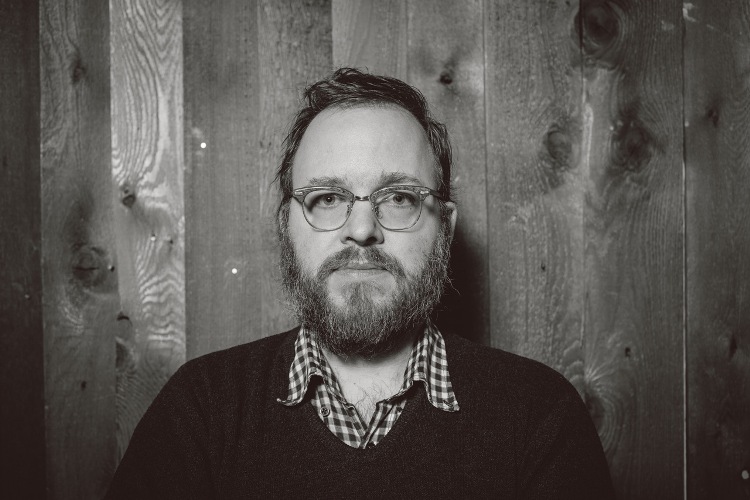
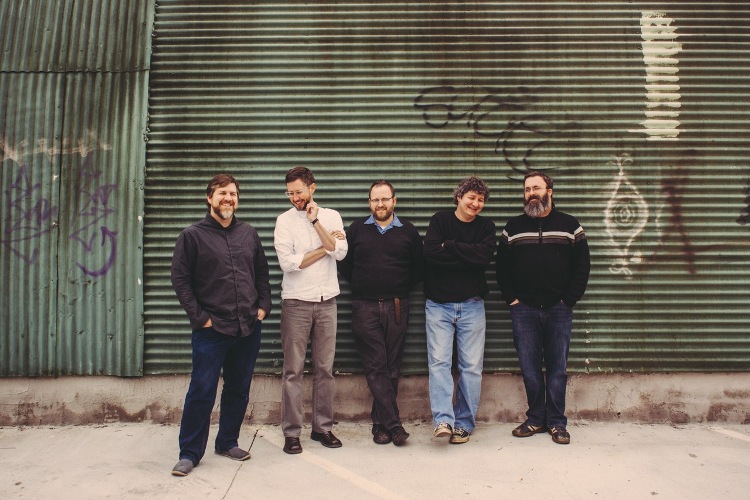
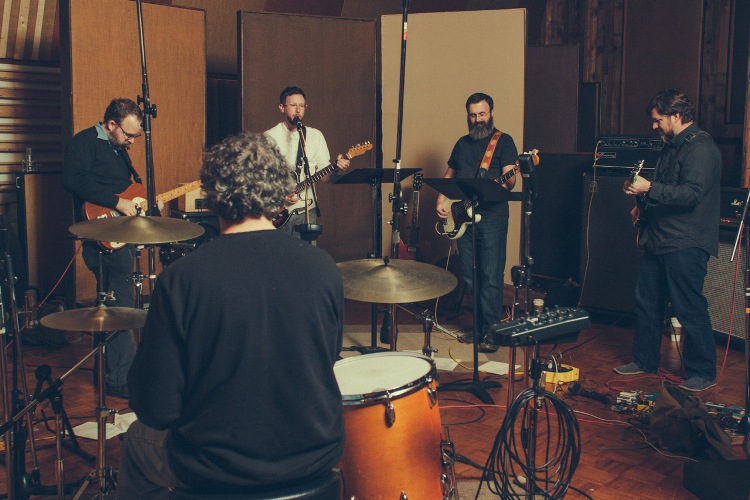
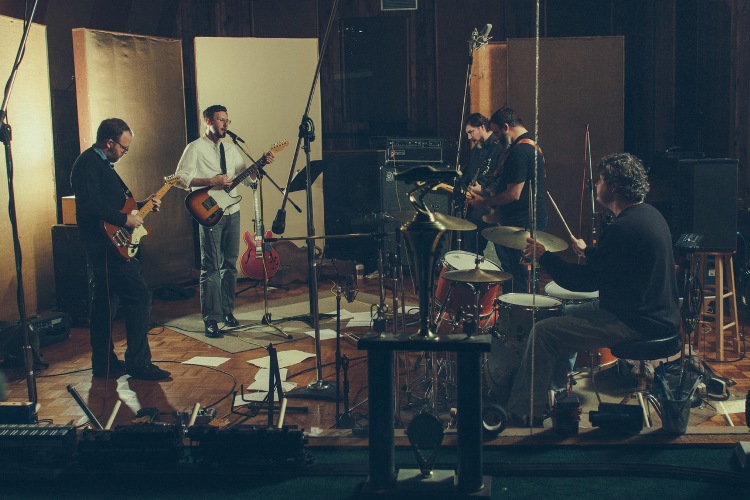
Leave a Reply